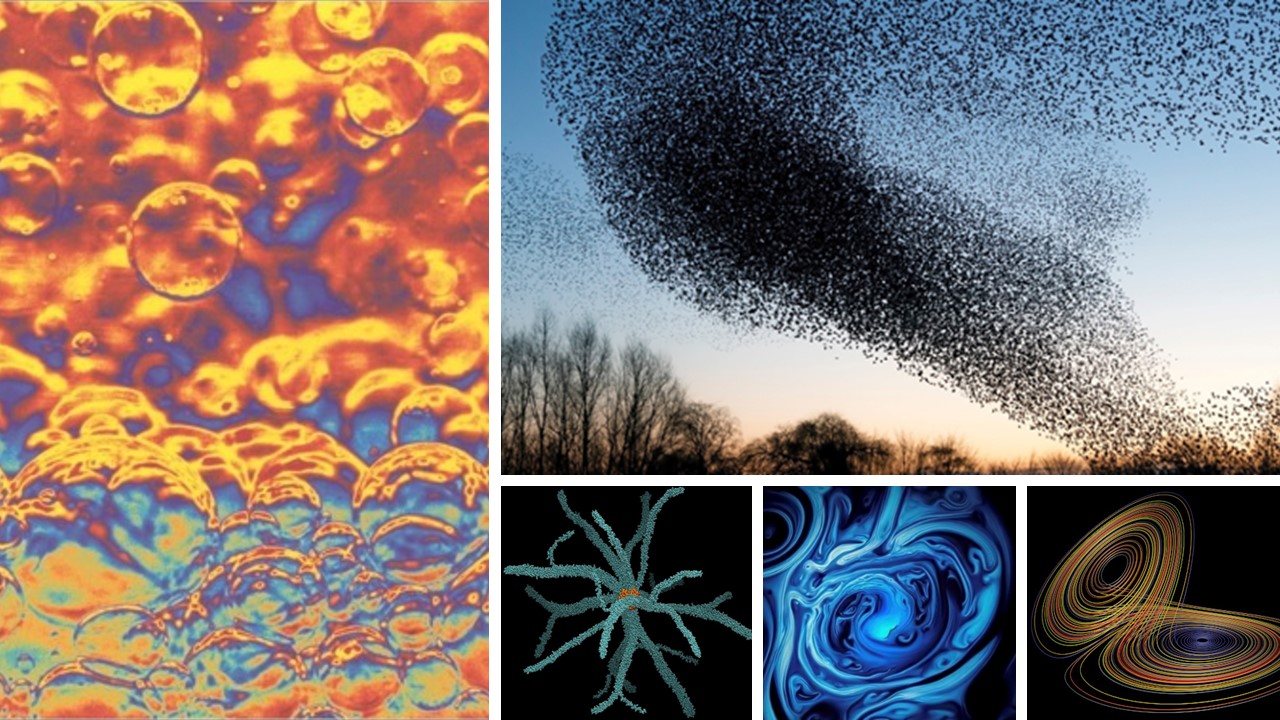Master Degree in
Physical and Astrophysical Sciences
Physics of Complex Systems
Contacts
Franco Bagnoli, franco.bagnoli [at]unifi.it
Francesco Piazza, francesco.piazza[at]unifi.it
Curriculum details
The Physics of Complex Systems curriculum has an explicitly interdisciplinary and theoretical-computational approach, focused on acquiring important tools to tackle open problems in various disciplines beyond physics, such as biology, medicine, cognitive sciences, and artificial intelligence. In the spirit of education through research, special attention will be given to selecting, where possible, teaching materials that integrate examples and experimental data from the numerous active laboratories in the Florence area (and beyond) in physics and other disciplines. Students choosing this curriculum are strongly encouraged to get in touch early with research groups at the Department of Physics and Astronomy or other institutions based on their interests, allowing for a gradual approach to research. These activities may take the form of small ad hoc projects, in-depth studies of various course topics, bibliographic reviews, and more. In this regard, it is highly recommended to use elective courses and possible Erasmus periods to deepen the interdisciplinary aspects of the curriculum.
The curriculum in the physics of complex systems provides training that develops skills in analyzing, structuring, and modeling open problems in various fields, helping students build the critical thinking necessary to address complex topics, which is valuable both in fundamental research and applied research.
The structure of the curriculum in Phisics of Complex Systems is summarized in the following table:
|
Type |
Course |
CFU |
Sector |
|
|
|
Core courses (48 cfu) |
Computational physics laboratory Dynamical systems and theory of chaos Non-equilibrium and stochastic processes Statistical mechanics Theoretical physics of living systems Theory of complex networks One course to choose from: Atoms, molecules, and photons Condensed matter physics and critical phenomena Elements of matter physics Molecular and cellular biophysics Laboratory of biophysics and biophotonics Liquids physics laboratory Molecular and cellular biophysics Quantum information One course to choose from: Astrophysics Cosmology Numerical methods for astrophysics Physics of the atmosphere and climate Plasma physics Relativistic astrophysics |
6 6 6 6 6 6
6 6 6 6 6 6 6 6
6 6 6 6 6 6 |
FIS/03 FIS/02 FIS/02 FIS/02 FIS/03 FIS/03
FIS/03 FIS/03 FIS/03 FIS/03 FIS/03 FIS/03 FIS/03 FIS/03
FIS/05 FIS/05 FIS/05 FIS/06 FIS/06 FIS/05 |
||
|
Related and integrative courses (18 cfu) |
Three electives from those in this list, or from: Didattica della fisica Mathematical methods for theoretical physics Theoretical physics Fisica dei liquidi e soft matter |
6 6 6 6 |
FIS/08 FIS/02 FIS/02 FIS/03 |
||
|
Elective courses (12 cfu) |
Courses chosen from the curriculum not already selected, or offered in other curricula, or in other degree programs at the University of Florence |
12 |
|||
|
Further knowledge (6 cfu) |
English language B2 Italian language (for foreigners) Training activities for professional choices Training and orientation internships |
3 3 3 6 |
|||
|
Final exam (36 cfu) |
Final exam: research work Final exam: writing and discussion |
30 6 |
|||
|
TOTAL |
|
120 |
|||
Following this structure, any student can get a personalized plan approved automatically online.
If not already selected during the Bachelor's program, the following preparatory course is recommended:
Introduzione alla fisica dei sistemi complessi
Among other courses offered at the University of Florence that can complement an interdisciplinary path, we highlight:
@Mathematics:
Mathematical Modeling for Applications
Mathematical Methods for Applications
LM Artificial Intelligence and LM Data Science @unifi
Statistical Physics and Complex Systems
Data Science for Neurosciences
Fundamentals of Machine Learning
Deep Learning / Deep Learning Applications
Last
update
18.06.2025


